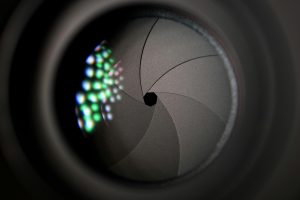Smart Apartment Technology: What Tenants Expect Now
In today’s world, technology has become an integral part of our daily lives. From smartphones and smart watches to smart homes and smart offices, the use of cutting-edge technology has revolutionized the way we live and work. In the real estate industry, the integration of technology has made its way to apartment buildings, giving rise to the concept of “smart apartments”. These smart apartments are equipped with various smart technologies that offer convenience, comfort, and security to tenants. As a result, the demand for smart apartment technology has increased rapidly, with tenants expecting more than just a place to live. Let’s take a closer look at what tenants expect from smart apartment technology now.
What is Smart Apartment Technology?
Smart apartment technology refers to the use of internet-connected devices and sensors that are installed in apartments to automate and control various functions such as lighting, temperature, security, and more. These devices and sensors are connected to a central hub, which can be controlled through a mobile app or a voice assistant. This integration of technology not only makes living more convenient but also offers cost-saving benefits to tenants.
Convenience and Comfort
Control over Appliance and Lighting
One of the main expectations of tenants from smart apartment technology is the ability to control their appliances and lighting through their smartphones or voice assistants. With the use of smart plugs, tenants can turn their appliances on or off remotely, saving them the trouble of manually switching them on or off. They can also set schedules for their appliances, adjusting them according to their daily routines. Similarly, with smart lighting, tenants can control their lights remotely, adjust the brightness and even change the color of their lights to create different moods.
Temperature Control
Smart thermostat systems are another popular feature that tenants are looking for in smart apartments. These thermostats allow tenants to control the temperature of their apartment from their smartphones or voice assistants, making it easy to maintain an optimal temperature and save on energy costs. Some advanced systems also learn the tenant’s habits and adjust the temperature accordingly, offering maximum comfort.
Automatic Home Cleaning
Another convenience offered by smart apartment technology is automatic home cleaning. With the use of robotic vacuums, tenants can schedule the cleaning of their apartment and forget about it. These devices can be controlled through a smartphone app and can even be set to clean when the tenant is away, ensuring a clean home without any effort.
Security and Safety
Smart Locks
Tenants expect their smart apartment to offer them the utmost security, and smart locks play a vital role in ensuring that. These locks can be controlled through a smartphone app or a key code, eliminating the need for traditional keys. They also come with features such as remote locking and unlocking, access logs, and even the ability to grant temporary access to guests, making it easier for tenants to manage their security.
Smart Security Cameras
Another must-have feature for tenants is smart security cameras. These cameras offer remote monitoring of the apartment, providing tenants with a sense of security even when they are not at home. They can also be wired to motion sensors and send alerts to the tenant’s smartphone if there is any suspicious activity, ensuring a safe living environment.
Conclusion
The demand for smart apartment technology is only going to increase as tenants look for convenient, comfortable, and secure living spaces. With the integration of advanced technology, tenants can enjoy a hassle-free living experience, making their everyday tasks more manageable and offering them a sense of security. As the real estate industry continues to evolve, it is safe to say that smart apartment technology is here to stay.











